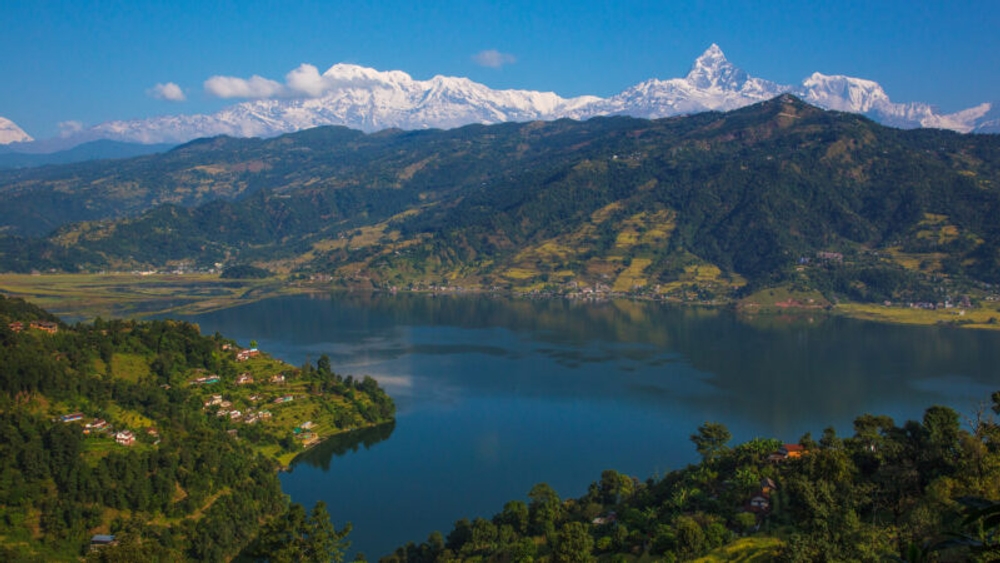Published
- 3 min read
South Asia at a Crossroads: Climate Action, Development, and Diplomacy

South Asia at a Crossroads: Climate Action, Development, and Diplomacy
South Asia is undergoing a transformative period, marked by strides in development, regional diplomacy, and global climate action. From Afghanistan’s educational reforms to Bhutan’s climate leadership, the region is leveraging opportunities while addressing challenges. This article explores the latest developments shaping South Asia’s future.
Afghanistan: A Push for Development and Global Integration
Afghanistan is making significant progress in infrastructure and diplomacy. The Taliban-led government sent a delegation to India for the 25th Meeting of the South Asian Telecommunication Regulators’ Council (SATRC-25), indicating a push for international collaboration in technology.
Domestically, the Ministry of Education has completed 125 schools and 38 madrasas in six months, funded by charitable organizations and local businessmen. Simultaneously, Deputy Prime Minister Mullah Abdul Ghani Baradar emphasized poverty alleviation and job creation as core priorities, signaling a broader focus on socio-economic stability.
Bangladesh: Balancing Reforms and Economic Opportunities
In Bangladesh, political and economic shifts are taking center stage. Interim government leader Muhammad Yunus stressed the importance of reforms before holding elections. Meanwhile, Chinese investors are exploring opportunities in Bangladesh amid uncertainties related to U.S.-China trade relations.
On the global stage, Bangladesh’s engagement at climate summits and increasing investment inquiries reflect its aspirations for sustainable development and economic growth.
Bhutan: Leading Climate Neutrality with G-ZERO
At COP29 in Baku, Bhutan showcased its environmental leadership by co-launching the G-ZERO coalition. This initiative, comprising carbon-neutral nations like Bhutan, Madagascar, Panama, and Suriname, aims to accelerate global climate action. Bhutan’s efforts emphasize that carbon neutrality can align with economic progress, setting an example for the world.
Maldives: Climate Finance and Economic Revival
Maldives President Dr. Mohamed Muizzu called for a global climate finance overhaul, emphasizing the need for trillions of dollars to address climate challenges. His statement at COP29 underscores the urgency for Small Island Developing States (SIDS) to secure adequate funding.
Economically, the Maldives is optimistic, with predictions of 7% growth in 2025. This resurgence is driven by housing initiatives and strategic reforms under President Muizzu’s leadership.
Pakistan: Digital Transformation and Climate Challenges
Pakistan is focusing on digital innovation with its upcoming Artificial Intelligence (AI) policy, aimed at bolstering cybersecurity and the digital economy. On the climate front, the country secured an $18.5 million grant from Japan for flood management but remains vocal about unmet financial pledges from previous climate summits.
Sri Lanka: Democracy in Action
Sri Lanka’s parliamentary elections mark a critical step in its political recovery. Amid heightened security measures involving 90,000 personnel, citizens are voting to shape the nation’s next government. This election is pivotal as Sri Lanka seeks stability after years of economic and political turmoil.
Shared Themes: Climate, Development, and Diplomacy
Climate Action
The COP29 summit in Baku has emerged as a unifying platform, with Bhutan, Maldives, and Pakistan advocating for stronger climate commitments. The G-ZERO coalition and calls for enhanced climate finance reflect the region’s urgency in combating environmental challenges.
Economic Development
From Afghanistan’s focus on education to Bangladesh’s economic reforms, South Asia is prioritizing growth. The Maldives’ ambitious housing projects and Pakistan’s AI-driven digital transformation highlight the region’s adaptability and innovation.
Regional Diplomacy
Afghanistan’s participation in SATRC-25 and Bhutan’s leadership at COP29 illustrate a renewed emphasis on regional and global collaboration. These diplomatic efforts could foster stronger ties and shared solutions to common challenges.
Conclusion: A Region Poised for Transformation
South Asia is at a pivotal juncture, balancing economic aspirations, climate responsibilities, and political reforms. The region’s ability to harmonize these priorities will define its future. As nations collaborate and innovate, South Asia offers a blueprint for resilience and progress in an interconnected world.
